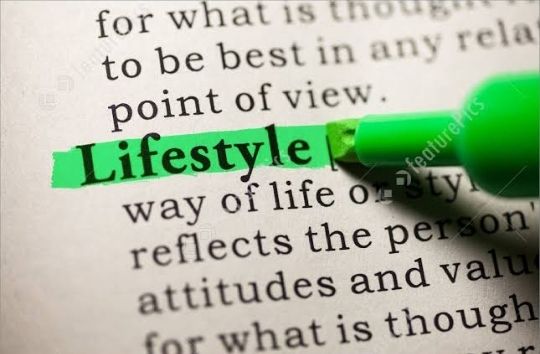Lifestyle.
Jun 02, 2019 • 36 views

Lifestyle is a way of life established by a society, culture, group or individual. This includes patterns of behavior, interaction, consumption, work, activity and interests that describe how a person spends their time. The following are common elements of lifestyle.
Elements of lifestyle.
Culture.
The traditions and shared experiences valued by a group. For example, the holidays, pastimes, music and art that you enjoy.
Norms.
Shared expectations of behavior. This includes things like rules of politeness, courtesy and civility that you follow.
Town & Country.
The place that you live tends to impact your lifestyle. For example, living in a large cosmopolitan city versus a remote island with an excellent beach.
Work.
Your profession and working style. For example, an artist who works at home on their own time versus working on a strict schedule within a system of rules that is beyond your control.
Transport.
How you get around. For example, a long commute on a highway that is prone to traffic jams versus someone who can walk to work on a pleasant street.
Wealth.
Your approach to securing financial resources for the future. For example, living below your means to save and invest conservatively versus aggressive spending and/or risk taking
Consumption.
Your behavior as a consumer. For example, a shopaholic versus a minimalist consumer.
Peak Experiences.
The habit of seeking experiences that you view as personally fulfilling in areas such as travel and adventure
Personal Reflection.
The habit of taking time to explore thoughts and ideas.
Escapism.
Enjoying fictional realities such as reading, films, video games and theme parks.
Health.
Your level of health and efforts to stay or become healthy.
Fitness.
Your level of physical fitness and activity level including participation in sports and recreation.
Information.
Your patterns of information consumption such as your internet and reading habits. For example, a person who spends 6 hours a day reading fashion blogs can view this as a significant element of their lifestyle.
Religion & Spirituality.
Participation in an organized religion and/or pursuit of spirituality.
Food.
How you eat. For example, preparing healthy food at home and viewing meals as a social activity.
Environment.
Your experience of nature and your impact on it.
Hobbies & Activities.
Your pursuit of interests such as a hobby.
Fashion.
How you dress and view fashion.
Social Status.
Your status within the community and other groups such as your family, work, profession and cultures. Social status is more than giving the appearance of wealth and can include things like physical appearance or the respect you get as a professional or family member. Lifestyle also includes your attitude towards social status such as the ability to transcend worrying what others think.
Some of the lifestyle factors that can affect health.
Behavioural and social issues that impact on health include smoking, alcohol, poor diet leading to obesity or malnutrition, lack of physical exercise, sexual behaviour and problems resulting from drug taking.
